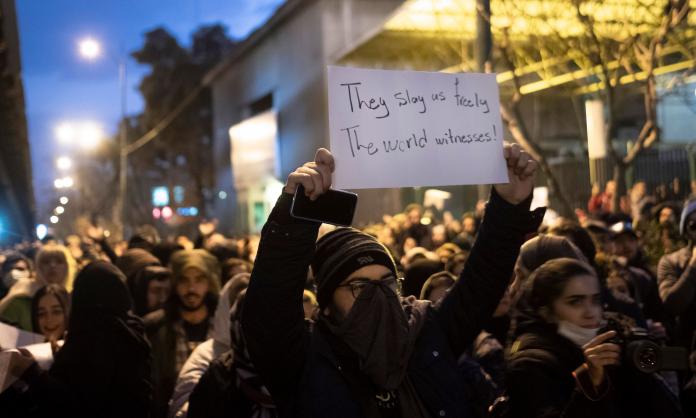Several overlapping crises confront Iran. A third wave of COVID-19 has begun in what is already the worst-affected country in the Middle East. An economic crisis has deepened and been made worse by crippling US sanctions and the pandemic, thrusting masses of Iranians into poverty. And a macabre offensive of government repression, including executions, has been unleashed by the regime against thousands arrested in November 2019, after the most widespread and radical anti-government protests since the Iranian revolution of 1979.
Iran’s economic prospects are dismal. The hardest hit are workers and the poor. Trump’s “maximum pressure” sanctions, a strategy designed to curb Iran’s influence in the Middle East, are hitting harder. Oil output—the core of Iran’s economy and its principal source of revenue—hit its lowest level since records began in 1993 due to the sanctions, but also because of shrinking global demand. Domestic consumption of petrol and other oil-based fossil fuels has also declined.
Inflation has reached staggering highs. In July, consumer inflation registered a 30 percent increase compared to the same time last year. The cost of staples such as butter and eggs has doubled. Eggs are an important source of protein for working-class people, many of whom cannot afford meat. Rents have doubled in recent months. This comes on top of an existing housing crisis in which increasing numbers had been forced into slum dwellings. Reports abound of people moving back home with elderly parents and sleeping on the rooftops of buildings. Ibrahim Razaghi, an economist, estimates that 60 million Iranians—three-quarters of the entire population—live below the poverty line and that 30 million are unemployed. He told state-run website Tabnak that one problem is a systematic “lack of supervision over the economy”.
The desperate struggle to survive is caused by the disastrous state of workers’ wages. A recent International Labour Organization report notes that Iran has one of the lowest national minimum wages in the Middle East. According to Faramarz Tofighi of the Association of Islamic Labour Councils, the average monthly wage is US$80, but a family of three needs at least $300 per month to cover the basics.
Read the article by Simone White in Red Flag.

